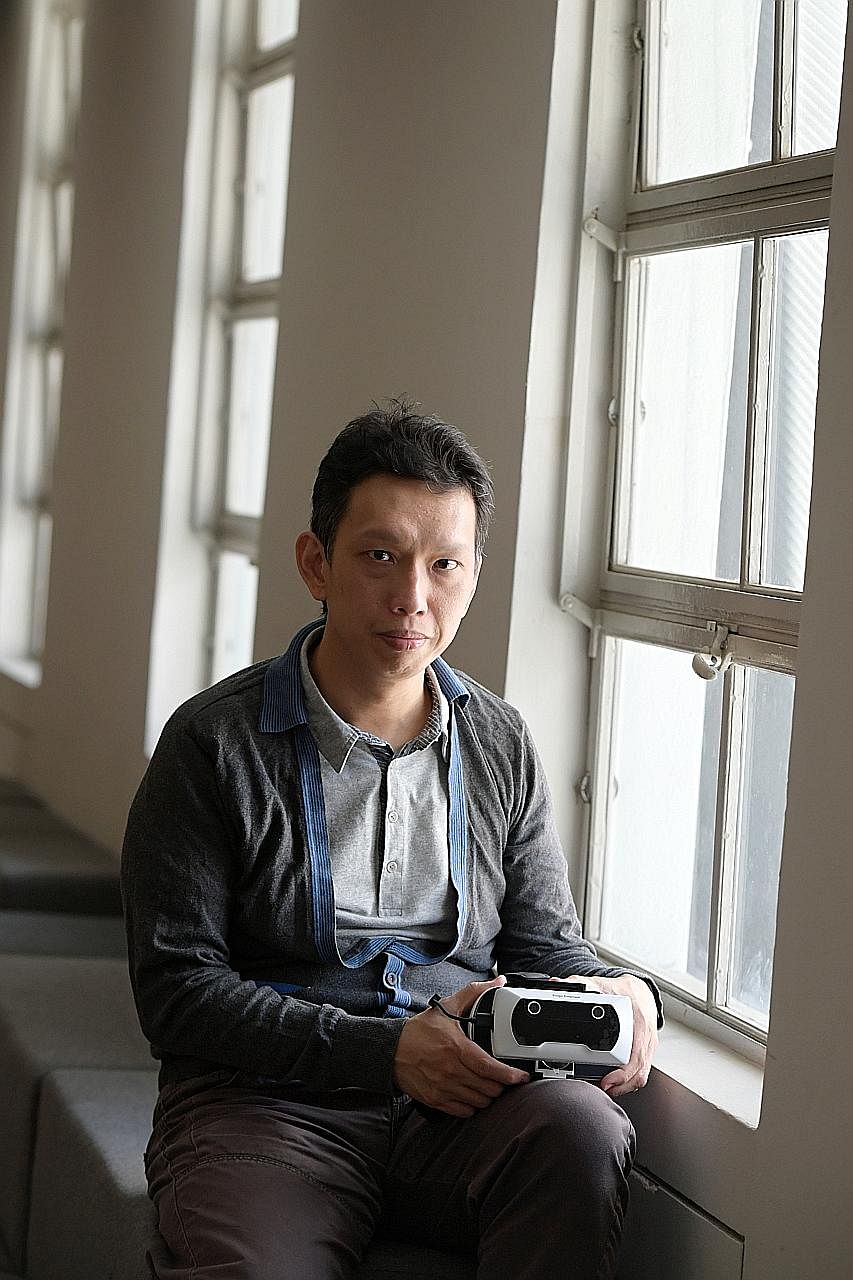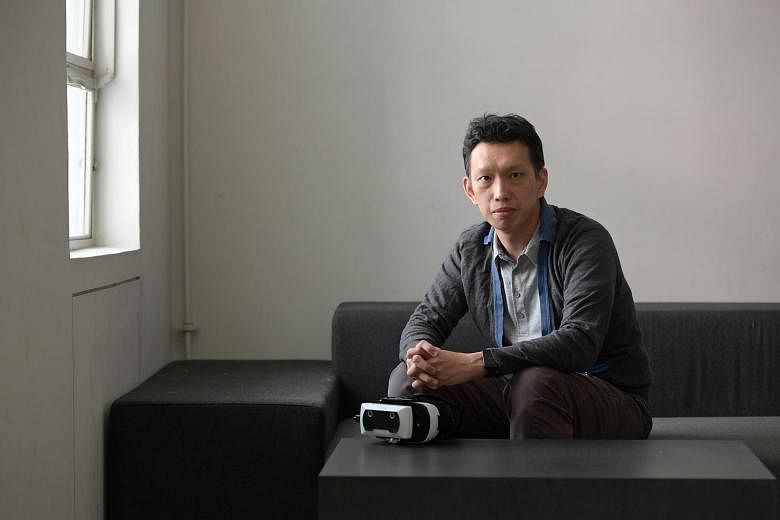Ask Mr Lionel Chok what he thinks of virtual reality and his enthusiasm is infectious: "Virtual reality is kick-ass!"
To some people, virtual reality, or VR, is simply a term associated with clunky headsets and video games.
To Mr Chok, however, VR presents a world of opportunities.
"I view VR as a technology that is integral to many aspects of our lives, industries and markets. It can be used for marketing, and even for training and simulation. The applicability of such technologies in many industries will hopefully create new, meaningful jobs," he said.
Mr Chok, 45, is the founder of technology start-up Immersively, which specialises in augmented reality (AR) and VR technologies.

"Immersively focuses on education as well as services and applications. We give workshops and talks to raise awareness of VR technologies. Working on events is also a viable model for us. We did an event in Kuala Lumpur for the movie Kong: Skull Island where we created a showcase in a mall that allowed members of the public to get a virtual experience of going around Kong island," he said.
While Immersively started only last year, Mr Chok's affinity with VR began long before its recent hype.
He spent over 15 years in the media industry, where he held producer, editor and director roles in organisations such as Mediacorp and Caldecott Productions.
In 2013, in his role as a senior producer and head of commissioned content at Toggle, a budding over- the-top service provider then, Mr Chok was tasked to produce one show every year as well as commission film projects.
This provided him with the opportunity to produce a documentary on technology start-ups, which meant speaking to players in the technology industry, attending hackathons and looking at the newest technology in the market.
In short, the project enabled Mr Chok to discover his profound interest in technology.
"I found a strange affinity with technology. Even after the documentary was completed, I continued going to talks and looking at various technology companies. I couldn't help but find technology extremely exciting," he said.
This zeal drove Mr Chok to want to know more about technology and how it works, so he sent applications to various institutions in order to learn more about what he regarded as the language of the future.
"I wanted to explore the field and see exactly what else I could do. On a whim, I sent out applications to various places to teach me technology," he recalled.
"Middlesex University didn't have a specific course for VR but it offered a postgraduate degree in creative technology. In that one year, they would teach different modules in technology and at the end, you could decide what you wanted to specialise in. When I was accepted, I quit my job and left for London."
As luck would have it, he was the only student in the course for that year, which meant he had the undivided attention of professors in fields ranging from robotics to artificial intelligence - further fuelling his passion for technology.
Yet, Mr Chok's love for technology did not automatically translate into an interest in VR.
"AR and VR was the last module introduced to me. Initially, I didn't want to take it because it was very visual and seemed too related to media. I wanted to go into coding - to build websites and to code apps. However, my supervisor advised me against that, citing intense competition and a declining industry. I then decided to focus on VR."
Although Mr Chok took on a marketing role at a start-up after he returned to Singapore at the end of 2015, he knew it would only be a matter of time before he got involved in VR full-time.
"During that time, I put my portfolio out there as having a postgraduate degree in VR and I was actually able to consult on several projects. I eventually decided to consult on such projects full-time. When I left my job, I already had two VR projects in the pipeline," he added.
These projects made Mr Chok realise the time was ripe to start a business related to VR - so Immersively was born.
Looking ahead, he hopes that Immersively will continue to search for its niche in the market.
"Moving forward, many VR firms will converge towards some form of specialisation - building VR products unique to particular industries.
"Personally, I don't know if Immersively will focus more on content or education. There's much potential in content creation, but I also believe VR provides the next most powerful tool for education besides experiential learning. However, there will be no hard restrictions to certain industries - the main engine and capabilities will still be there," he said.
While Mr Chok firmly believes in the potential of VR, he admits that Immersively's journey has not been entirely smooth sailing.
"Because the technology is so new, everyone who comes on board is new too. I'm also new to running a business so I'm relying on experience from my previous job, but it may not be the best way to run the business. I think there is certainly a lot to be improved."
Despite the challenges, VR has not lost its allure for Mr Chok.
"The VR industry is always changing. Players are constantly pushing the boundaries of our imagination by coming up with fresh ideas with new applications. For example, some start-ups are creating a social space where individuals' avatars can meet in a virtual space, even though the individuals are in different countries. This is what makes VR so exciting!"

